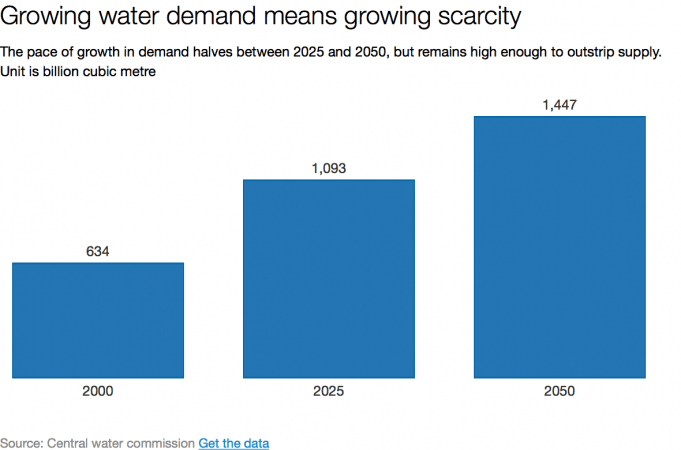
University of Petroleum and Energy Studies (UPES) on Thursday announced a project -- titled "Swachh Neer - Une Vie Meilleure" (a better life) -- to develop technologies for recycling and recovery of waste water to combat growing water scarcity.
UPES is a recognised and accredited educational institution by the University Grants Commission (UGC) and the National Assessment and Accreditation Council (NAAC). Both UPES and Ecole Nationale Superieure d'Ingenieurs de Poitiers (ENSIP) from France are the principal coordinators of the project.
Other collaborators of the project include Indo-French consortium of academic institutions and industry players such as Indian Institute of Technology (IIT) Roorkee, National Environmental Engineering Research Institute (NEERI), Venza Water Management Solutions from India and Universite de Rennes 1, Institut Europeen des Membranes (IEM), WASTE and WATER SARL from France.
"Keeping in mind technical and engineering aspects of waste water planning 'Swachh Neer' project will focus on technology development, awareness programs, and interactions with direct beneficiaries. An awareness drive will also be conducted in selected regions in India and France to identify the ground level challenges. We also plan to develop low cost nano-material with French collaboration for effective treatment of water," Dr. Jitendra K. Pandey, associate head of R&D at UPES and principal coordinator of the project from India, was quoted saying by ANI.
The project also includes the building of an "evaluation matrix" in order to screen the efficacy of various alternative technologies such as nano-cellulose from waste, CNT/Fullerene based treatment technology for waste water treatment and disposal, including residuals disposal.
Water woes in India and France
Water scarcity has increased tremendously over the last 100 years, and in 1951, the annual per capita availability of fresh water in India was 5,177 cubic metre. For the year 2050, annual per capita availability of fresh water may reduce to 1,140 cubic metre. Experts agree that such a dramatic fall can be explained as per capita availability decreases in direct proportion to the increase in population.
Only 60 percent of industrial waste water generated from large scale industries is treated adequately. The sewage treatment capacity of only of 11,786 million litres per day (MLD) is grossly inadequate when compared to the roughly 38,354 (MLD) of sewage generated in major cities.
France also has similar environmental concerns. Increasing water pollution due to the accumulation of industrial contaminants, agricultural nitrates, and waste from the country's cities has posed a serious threat to the sustainable and long term availability of clean water.

















